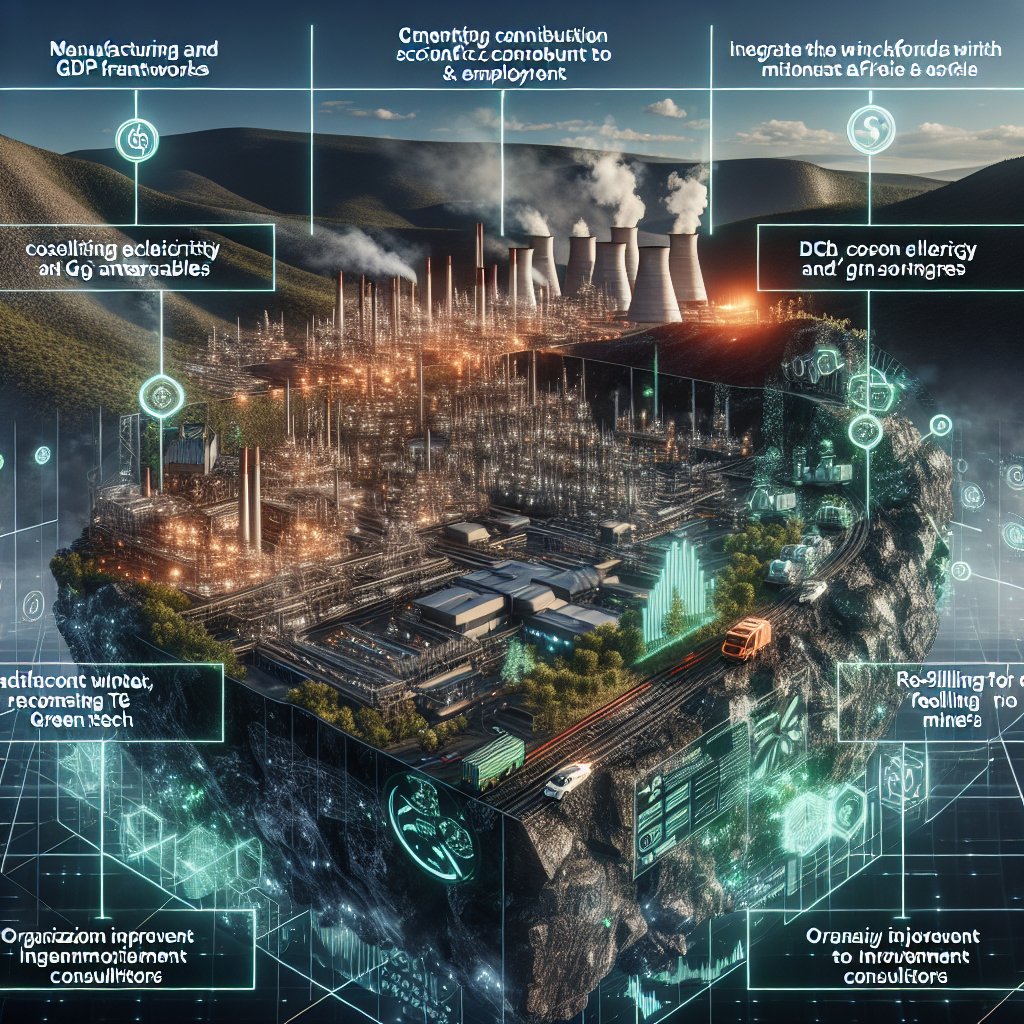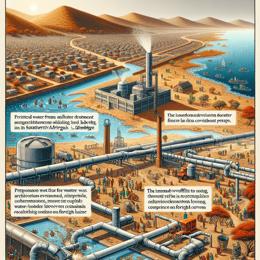Image created by AI
At the Crossroads of Coal & Sustainable Energy: South Africa's Delicate Balance
The Coal & Energy Transition Day this month has amplified discussions around sustainability within the coal mining sector. With an increasing global emphasis on environmental, social, and governance (ESG) principles, South African stakeholders are actively considering the impact of the energy transition on both the economy and the environment.
The country's coal sector, a significant contributor to its GDP and employment, is now at the coalface of a major transformation. Shareholders and business leaders across South Africa's mining and manufacturing industries are embracing the responsibility to 'go green.' This entails not only reducing carbon footprints but also implementing practices such as recycling, waste reduction, and the adoption of renewable energy sources.
However, this transition poses a unique dilemma, especially for developing nations. There's a stark realization that achieving sustainability is a marathon rather than a sprint. In the wake of social and economic challenges such as loadshedding, political unrest, and logistical disruptions, immediate action towards green initiatives may conflict with the current imperative of economic survival.
The majority of South Africans, many living at the poverty threshold, prioritize cost-effective and reliable electricity access over the luxury of renewable alternatives. The stark socio-economic divide reinforces the need for a gradual and inclusive transition to green energy.
Internationally, even developed nations are wrestling with their green ambitions. Instances like Britain’s former Prime Minister Rishi Sunak's softer stance on net-zero carbon emissions underscore the necessity for pragmatism and nuanced approaches.
For developing countries relying on fossil fuels, abrupt cessation of coal production in exporter nations could paradoxically increase their carbon footprints. Such outcomes call for a holistic and coordinated global effort towards sustainability.
In South Africa, mines have begun integrating ESG frameworks and utilizing renewable energy. Sustainable programs are in place, but there looms a critical need for reskilling the workforce employed by the coal industry. As the nation progresses, ensuring that technological advancements and employee skills are aligned will be crucial for maximizing the benefits of sustainable practices.
As we navigate through the intricacies of the energy transition, the role of organizational improvement consultants becomes vital. Advising clients within the mining sector, the goal is to harmonize the progression of operations with the evolution of the workforce. The journey towards a greener future in South Africa is underway, yet the path requires patient and strategic steps, ensuring that the interests of both the environment and the economy are balanced.






